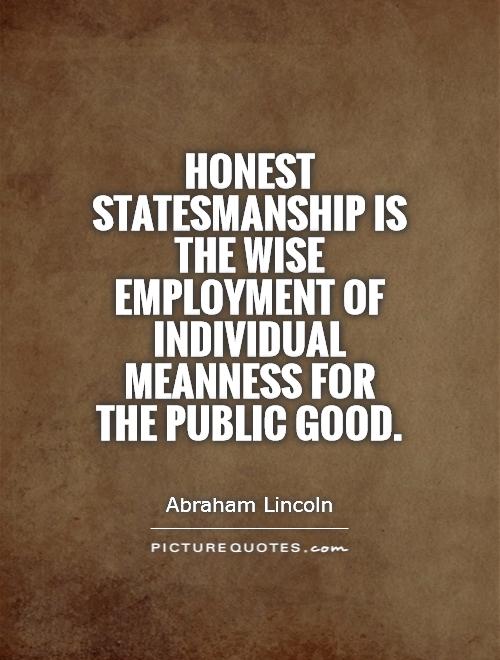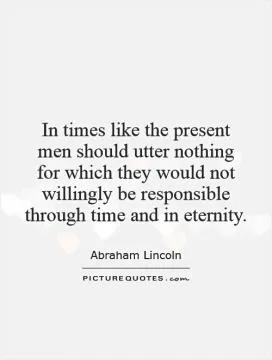Honest statesmanship is the wise employment of individual meanness for the public good

Honest statesmanship is the wise employment of individual meanness for the public good
Abraham Lincoln is often regarded as one of the greatest statesmen in American history, known for his honesty, integrity, and commitment to the public good. His leadership during one of the most tumultuous periods in American history, the Civil War, exemplified his dedication to the principles of democracy and equality. Lincoln's approach to statesmanship was guided by his belief in the power of individual meanness, or the ability to make tough decisions and take decisive action for the greater good.Lincoln understood that in order to lead a nation through a crisis as divisive as the Civil War, he would need to make difficult and often unpopular decisions. He recognized that sometimes the ends justify the means, and that in order to achieve the public good, he would need to employ tactics that may be seen as harsh or unkind. However, Lincoln believed that it was his duty as a leader to do whatever was necessary to preserve the Union and ensure the freedom and equality of all Americans.
One of the most controversial decisions Lincoln made during his presidency was the Emancipation Proclamation, which declared all slaves in Confederate-held territory to be free. This executive order was met with fierce opposition from both the North and the South, but Lincoln believed that it was necessary to strike a decisive blow against the institution of slavery and weaken the Confederacy. Despite the personal and political risks involved, Lincoln stood by his decision, knowing that it was the right thing to do for the future of the nation.












 Friendship Quotes
Friendship Quotes Love Quotes
Love Quotes Life Quotes
Life Quotes Funny Quotes
Funny Quotes Motivational Quotes
Motivational Quotes Inspirational Quotes
Inspirational Quotes